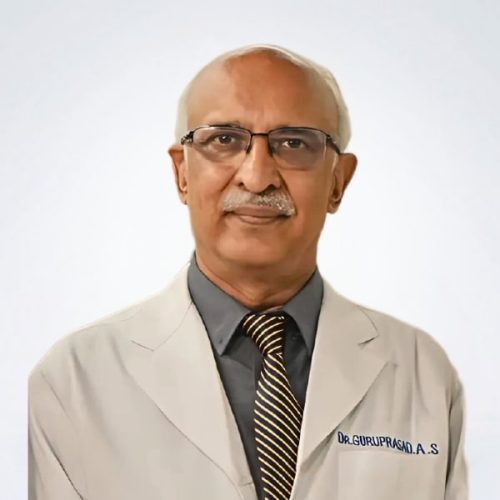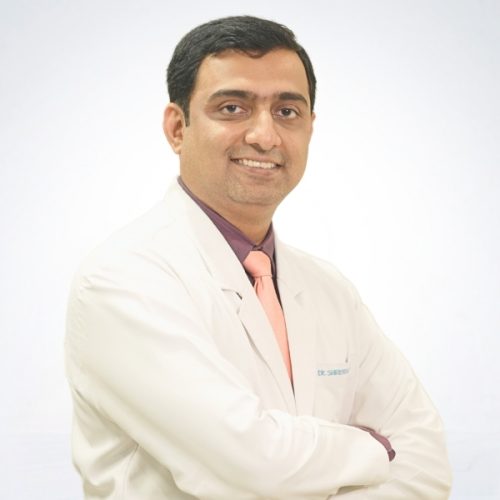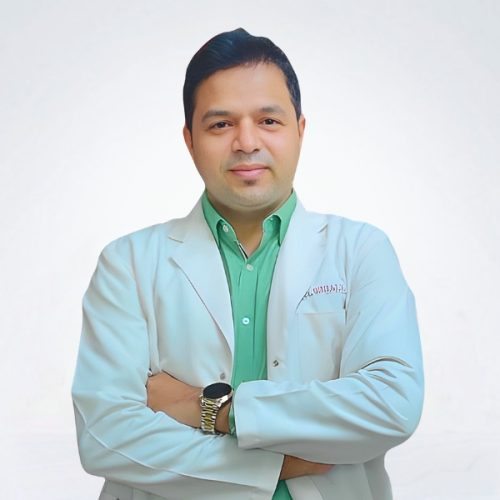Advanced Care for Retinal Diseases with Cutting-Edge Technology

The Vitreoretina department at M M Joshi Eye Institute is one of the oldest and most respected in the state, serving patients with retinal diseases since the early 1980s. Led by Dr. A. S. Guruprasad, the region’s first vitreoretinal specialist, the department is equipped with state-of-the-art technology to diagnose and treat a wide range of retinal pathologies.
Comprehensive Retinal Care Services
Our department offers a full spectrum of diagnostic and surgical services to ensure the best outcomes for our patients. These include:
- Thorough Retinal Evaluation: Screening for conditions such as Diabetic Retinopathy, Hypertensive Retinopathy, and Age-Related Macular Degeneration (ARMD).
- ROP Screening for Premature Infants: Using Retcam imaging to assess and monitor Retinopathy of Prematurity (RoP).
- Advanced Diagnostic Tools: Including Fundus cameras to capture high-resolution images of the retina and Heidelberg Spectralis OCT for detailed scanning.
- Ultrasound Imaging: B-Scan and UBM for accurate imaging of the eye structure.
- Fluorescein and Indocyanine Green Angiography: To assess retinal circulation and detect other retinal pathologies.
Electrophysiology Testing: ERG and VEP to measure electrical activity in the retina.
Advanced Surgical Techniques
At M M Joshi Eye Institute, we specialize in performing complex retinal surgeries, including retinal detachment repair and macular surgeries. Our cutting-edge technologies include:
- Ngenuity 3D Visualization System: For digitally-assisted Vitreoretinal Surgery (DAVS), providing enhanced precision.
- ZEISS Lumera 700 with i-OCT Integration: For real-time imaging during surgery.
- Laser Procedures: For conditions such as Diabetic Retinopathy, retinal degeneration, and retinal holes. We use advanced multi-spot and micropulse lasers.
- Intravitreal Injections: For treating retinal diseases with Anti-VEGF, steroids (OZURDEX), and antibiotics/antifungals.
- Special IOL Implantation: Offering SFIOL, IRIS Claw, and Sulcus IOL options for complex cases.
Common Retinal Diseases Treated at M M Joshi Eye Institute
Damage to the macula, leading to vision loss.
Retinal damage caused by high blood sugar, potentially leading to blindness if untreated.
Retinal damage due to high blood pressure.
A medical emergency where the retina detaches from the underlying layer, risking permanent vision loss if not treated promptly.
Affecting premature babies, RoP can lead to retinal detachment and blindness.
Symptoms of Retinal Diseases
Flashes of light
Floaters
Sudden or gradual vision loss
Night blindness
Loss of peripheral vision
Distorted vision (Metamorphopsia)
Cataract Surgeons & Specialists
Book Your Retinal Evaluation Today!
If you are experiencing any of the symptoms mentioned above , Consult our specialists at M M Joshi Eye Institute for expert care and advanced treatment options.
Why MMJ
FAQs
Problems of retina can effect any part of the retina. The common signs shared by the retinal disorders include changes in vision such as flashes of light, a sudden increase of floaters, blurred or distorted vision, and even complete loss of vision.
Retinal diseases can lead to total blindness. But some level of damages to the retina can be cured with the help of medications, vitamins, injections, surgery, and laser treatment
The retina usually gets detached due to a hole or tear in the retina caused either by inherent weakness, a dynamic vitreoretinal traction or due to an injury.
Vitreoretinal surgeries are highly delicate surgeries as it an operation to treat eye problems involving the retina, macula, and vitreous gel. The procedure may take anywhere between 1 to 3 hours depending on the condtion of the retinal damage that is being treated upon.
There is no single best treatment. Depending on the contion of the retinal damamge, treatment in the form of medications or surgery are decided. The goal of retina treatment is to preserve and restore vision or prevent and slow down the damage of the retina. Surgical treatment for damaged Retina include Laser Surgery, Photocoagulation, Cryopexy.
Depending on the disease condition, retinal diseaes may take from a week to few months to be cured. However, many diseases can only be stabilised, some diseases can only be observed without treatment.
While there are no natural treatments for damaged retina, eating a healthy diet rich in nutrientssuch as Lutein and Zeaxanthin, foods rich in omega-3 fatty acids, can help reduce eye diseases.
Vitamin A, C and E and a few micronutrients
If untreated, some retinal diseases can cause severe vision loss or even blindness.
Retinal diseases can affect any part of your retina and can cause total blindness. Therefore early diagnosis is necessary for any eye problems .
With advancements in technology, there are a number of methods to treat retinal disorders. These include laser surgery photocoagulation, cryopexy, pneumatic retinopexy, scleral surgery, injection and implanting a retinal prosthesis.
Any where between Rs 10,000/- to Rs.60,000/- for surgery. For Injections given in few retinal disease it may vary between Rs.10,000/- to 50,000/- every one or two months
Retina surgery has a successs rate of an average of 80%, ranging from 50% to 95%
Curable retinal diseases results in improvement of vision
Most patients need some form of glasses after retina surgery
Surgery always carry some risks. Expertise of the opthalmologists matters. Besides, the success rate of the surgery also depends on factors such as aging, advanced diabetes, family history . eye injury , cataract etc.




